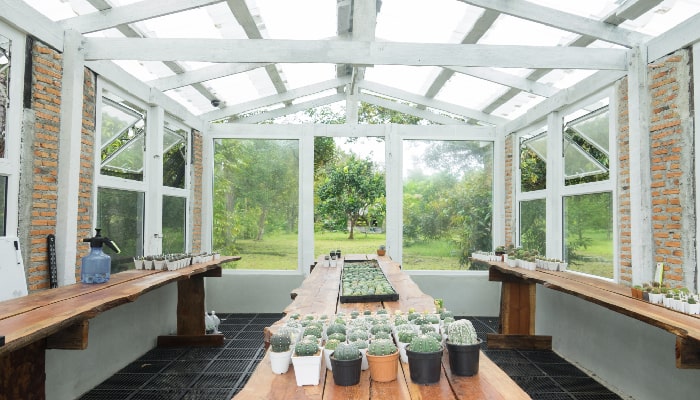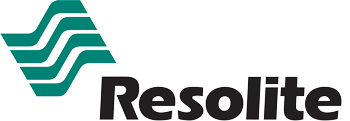The agricultural sector is an essential industry that provides food, fiber, and fuel to the world. However, it is also an industry that faces unique challenges when it comes to corrosion. Corrosion is the deterioration of materials due to chemical reactions with their environment. In agroindustrial environments, exposure to corrosive chemicals, moisture, and temperature changes can cause significant damage to equipment and facilities, leading to safety hazards, reduced productivity, and increased maintenance costs. In this article, we will discuss its risk factors, and how to prevent corrosion.
Types of corrosion in agricultural / agroindustrial environments
- Animal Waste The constant presence of animal waste and its byproducts–for example urea–results in an aggressive chemical attack on common construction materials. Because of the nature of their component materials, FRP panels are exceptionally well-suited to resist corrosion and provide a long-term solution to the chemical attack presented by animal waste.
- Chemical Exposure One of the primary risk factors for corrosion in agroindustrial environments is exposure to chemicals. Processes for agriculture involve the use of various chemicals, such as fertilizers, pesticides, herbicides, and cleaning agents. These chemicals can be highly corrosive and can cause significant damage to equipment and facilities over time. Proper material selection and design of equipment and facilities can help mitigate the risk of corrosion due to chemical exposure.
- Moisture and Humidity Moisture can lead to the formation of rust and other corrosive compounds on metal surfaces, while humidity can promote the growth of mold and other organisms that can accelerate corrosion. Agricultural industry environments often involve water usage and the presence of moist organic materials. Proper ventilation, dehumidification, and waterproofing of equipment and facilities can help prevent corrosion due to moisture and humidity.
- Temperature Changes Temperature changes can also contribute to corrosion in agricultural environments. Agroindustrial processes often involve temperature changes, such as heating and cooling of materials, which can exacerbate the risk of corrosion. Proper material selection and design of equipment and facilities can help mitigate the risk of corrosion due to temperature changes.
- Mechanical Wear and Tear Mechanical wear and tear is another significant risk factor for corrosion in agriculture. Equipment and facilities can undergo significant stress due to frequent usage, heavy loads, and exposure to harsh environmental factors. This stress can cause fatigue, cracking, and other forms of damage that can accelerate corrosion. Proper maintenance and repair of equipment and facilities can help mitigate the risk of corrosion due to mechanical wear and tear.
How to prevent corrosion with Agroindustrial FRP Panels from Stabilit America
FRP panels are known for their resistance to corrosion, but proper design and installation are crucial for achieving optimal performance and longevity. The following are the key factors to consider when preventing corrosion with agroindustrial FRP panels:
Material Selection The selection of materials is critical in preventing corrosion. FRP panels are made of a composite of resin and glass fibers, and the type of resin used can greatly affect the panel’s resistance to corrosion. Opalit for Agricultural applications is a result of a unique technological development, based on orthophthalic polyester resin. It has excellent resistance to chemicals and moisture. It is engineered to withstand the gasses of ammonia, created by the waste of chickens and pigs, resulting in an excellent roofing and ceiling product for poultry and hog farms. It offers strength, durability combined with great visual presentation.
Panel Design FRP panels should be designed to withstand the specific environmental factors present in agriculture. The panels should be designed with a chemical-resistant barrier layer. The thickness and reinforcement of the panels should also be considered to ensure adequate strength and durability.
Installation Proper installation is critical for preventing corrosion with FRP panels. The panels should be securely fastened to prevent movement or shifting, which can cause stress and damage to the panels. Because of their advanced design, Opalit panels are very fast and inexpensive to install.
Maintenance Regular maintenance is essential for preventing corrosion in agricultural environments. The panels should be inspected periodically for damage or wear and repaired or replaced as necessary. Cleaning agents and methods should be selected based on the type of panel and the specific environment. Opalit panels require minimal maintenance to keep their strength and aesthetically pleasing appearance.
Coating Coating the FRP panels with a protective layer can provide additional resistance to corrosion. Epoxy and urethane coatings are commonly used in agroindustrial environments. The coating should be selected based on the specific environment and exposure to chemicals, UV radiation, and temperature changes. Thanks to its special Gelcoat finish, Opalit is protected against harmful UV Rays, humidity and pollution. This also prevents fiber bloom and premature aging
Training and Education Training and education of employees is essential for preventing corrosion in agricultural environments. Employees should be trained on best practices for handling and storing chemicals, using equipment, and maintaining facilities. They should also be taught how to recognize signs of corrosion and report them promptly. Regular training and education can help prevent corrosion and ensure the safety of employees.
Benefits of Using FRP Panels
Using FRP panels in agroindustrial environments provides several benefits, including:
Resistance to Corrosion FRP panels are highly resistant to corrosion, which can significantly reduce maintenance costs and extend the life of equipment and facilities.
Lightweight and Durable FRP panels are lightweight and easy to install, yet durable enough to withstand harsh environments and heavy use.
Versatility FRP panels can be designed to meet the specific needs of agriculture, such as resistance to chemicals and UV radiation, fire retardancy, and noise reduction. There is a fire-retardant version of Opalit available.
Cost-effective FRP panels are a cost-effective alternative to traditional building materials, such as steel and concrete, and can provide significant savings in installation, maintenance, and replacement costs.
Now you know
Now you know how to prevent corrosion using panels like Opalit from Stabilit America. They are an excellent solution when it comes to cost, performance, ease of installation, low maintenance and resistance to corrosion and UV rays.
In conclusion, preventing corrosion in agriculture requires a comprehensive approach that considers material selection, design and installation, coatings and linings, maintenance and inspection, and training and education. By implementing best practices and regularly inspecting and maintaining equipment and facilities, agroindustrial companies can reduce the risk of corrosion, protect their assets, and maximize productivity. Proper prevention of corrosion can ensure the safety of employees and the environment, leading to a more sustainable and profitable industry.

Preventing corrosion is only the beginning of the features and performance of Stabilit America products
Modern construction requires materials and products that can perform. The answer to this challenge is technology. By designing and manufacturing cutting-edge products, Stabilit America rises to fulfill the needs of your construction or transportation project.
In addition to corrosion resistance, we have products that are strong enough to withstand foot traffic. We also have light-transmitting products that allow you to substitute glass in many projects, creating cost savings, improving performance and reducing project complexity. We even have products that reject bacteria and fungi to create spaces that can be easily sanitized.
Which of our solutions is the best fit for your needs?
- Acrylit
- Glasliner
- Macrolux Multiwall
- Macrolux Rooflite
- Macrolux Solid
- Macrolux AM
- Opalit
- Resolite CR
- Polylit
- Acryloy CR
- Versalit
Interior and exterior walls, roofs, covers, skylights, canopies, luggage and cargo boxes, truck walls…for any industrial, institutional, commercial or transportation project, Stabilit has a material that fits your needs. Contact us y and find out more about how we can help!


